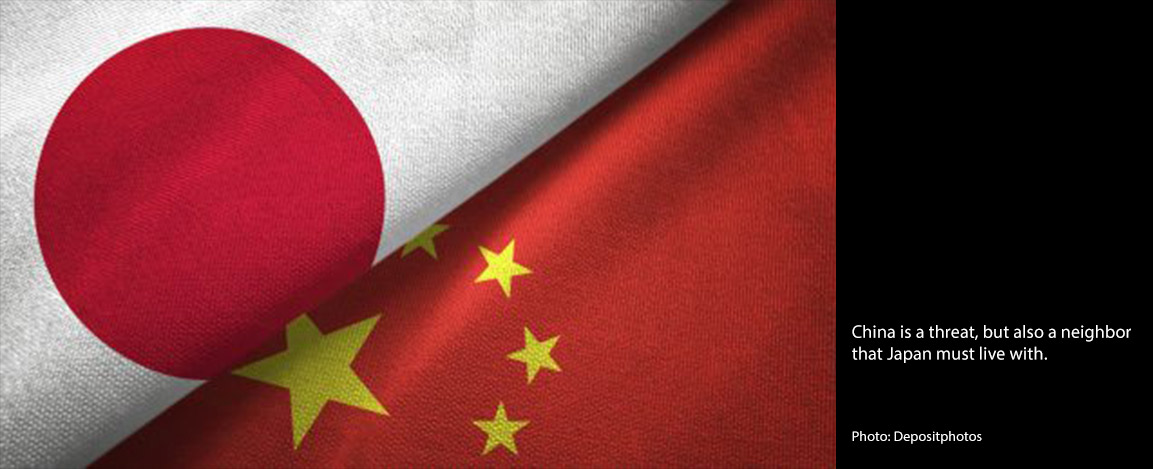PhD student Mina Pollmann provides analysis on the recent phone conversation between Japanese Foreign Minister Hayashi Yoshimasa and Chinese Foreign Minister Qin Gang. This article was originally published here in The Diplomat.
On February 2, Japanese Foreign Minister Hayashi Yoshimasa and Chinese Foreign Minister Qin Gang held a 50-minute phone conversation, in which they agreed to maintain close communication “at all levels” and explored how to mend bilateral ties. Hayashi and Qin pledged to work toward “constructive and stable relations,” despite issues that both ministers pointed out.
In many ways, the two sides seem to agree on what the relevant issues are – but are still talking past each other about the crux of the issues. Hayashi raised the point that Japan had “serious concern” about China’s intensifying military activities near Japan, specifically over the disputed Senkaku/Diaoyu islands, while Qin requested that Japan stop provocations by “right-wing forces” regarding the disputed islands. Hayashi underscored “the importance of peace and stability in the Taiwan Strait,” while Qin asked for Japan to be “cautious” in word and deed regarding Taiwan.
Hayashi also asked that China lift the Japanese food products import ban that has been in place since after the 2011 Fukushima nuclear crisis, while Qin noted China’s concern about Japan’s decision to discharge “nuclear-polluted water” from the crippled Fukushima No. 1 nuclear power plant.
The two sides also discussed COVID-19 related travel restrictions, using the fact that 2023 is the 45th anniversary of the 1978 bilateral Peace and Friendship Treaty as an opportunity to improve ties, and the ongoing Russian invasion of Ukraine.
It was the first conversation between Hayashi and China’s new foreign minister, who took up his post in late December. Previously, Qin was ambassador to the United States.
Although the phone conversation will by no means resolve all the issues, as Japan’s Chief Cabinet Secretary Matsuno Hirokazu stated at a news conference, “their conversation was a good start.” The two sides also agreed to try to facilitate an early visit to China by Hayashi.
Wu Jianghao’s anticipated appointment as China’s ambassador to Japan may also help improve bilateral ties. Wu has worked twice before at the Chinese embassy in Tokyo for a combined tenure of approximately a decade. He has been serving as assistant foreign minister since 2020. With his prior work experience in Tokyo, The Japan News notes that “Wu is believed to have a network of contacts in Japanese political and governmental circles.”
According to sources familiar with China-Japan relations, they note, “With the appointment of Wu, who like Kong is knowledgeable about Japan, the Chinese government is believed to be aiming to improve Japan-China relations, which have cooled.”
Even amid some signs of a China-Japan thaw, Tokyo’s recent flurry of military outreach has gotten a lot of attention. Prime Minister Kishida Fumio met with NATO Secretary-General Jens Stoltenberg on January 31. Kishida vowed to strengthen Japan’s relationship with NATO because of greater security concerns about China, North Korea, and Russia.
While currently the Japanese embassy in Belgium conducts Tokyo’s diplomacy toward NATO, Kishida pans to establish a permanent representative office for NATO soon. Kishida also indicated that Japan will dispatch officials from the Defense Ministry and other departments to learn about NATO’s defense and science technology. Kishida and Stoltenberg also agreed to draft a new agreement to deal with cooperation to deal with cyberspace threats and maritime defense.
NATO is increasingly keen to cooperate with Australia, Japan, New Zealand, and South Korea, collectively known as the Asia-Pacific four (AP4). In a first, the leaders of all four countries attended NATO’s June 2022 summit in Madrid, Spain.
Although Japan welcomes – and, in many cases, instigates – such overtures, Tokyo is always aware that its geographic proximity to China puts the threat from Beijing in a different category than it is for NATO member states. China is a threat, but also a neighbor that Japan must live with. Therefore, while strengthening cooperation with NATO (and the Philippines, India, Greece, and the Netherlands, most recently), Japan will also be perennially undertaking efforts to improve ties with China – and receptive to such outreach from China.




